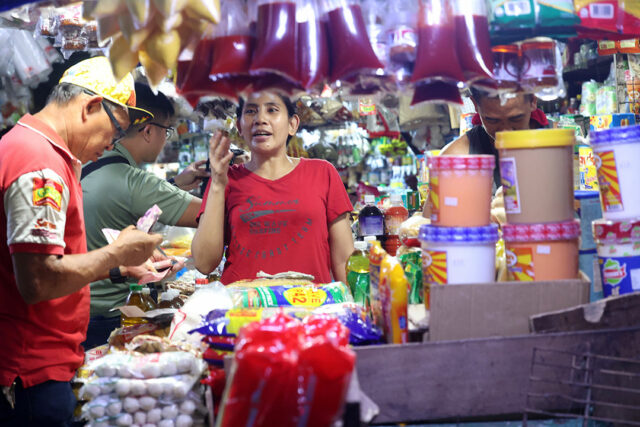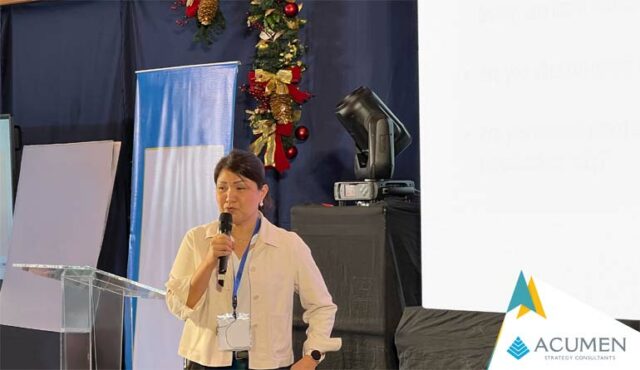Ethical AI, workforce upskilling, digital inclusivity take center stage at DMAP’s DigiCon 2024
2500+ attendees converge to address key industry trends, challenges
The Digital Marketing Association of the Philippines (DMAP), the leading organization known for its excellence and innovation in digital marketing, has successfully hosted the ninth edition of the Digital Congress (DigiCon), with the theme, “REVOLUTION,” on Oct. 15 to 16, 2024, in Newport City, Metro Manila.
The two-day event gathered over 2,500 participants, including 100 global and local industry experts, thought leaders, and technology pioneers, coming together to discuss key insights across marketing, advertising, business, academia, media, and innovation sectors.
DMAP’s DigiCon is the premier digital marketing conference in Southeast Asia, providing a vital platform for innovators and industry leaders both locally and internationally to drive advancements in the digital landscape.
Following the conclusion of this year’s conference, DMAP shared key recommendations for the industry. One of them is the responsible use of Artificial Intelligence (AI), with DMAP urging its members to explore and integrate AI tools ethically and responsibly, focusing on data privacy, transparency, and avoiding the spread of misinformation.
DMAP also emphasizes the importance of investing in local digital talent by providing upskilling and reskilling initiatives to equip Filipino marketers with the latest digital competencies, particularly in areas like AI, data analytics, and Web3.
Additionally, DMAP underscored the importance of digital inclusivity, urging the industry to bridge the digital divide in the Philippines by expanding internet access and digital literacy programs across the country.
Other key imperatives from this year’s DigiCon included pushing for data-driven decision-making to improve customer engagement and encouraging collaborative innovation to create a more vibrant digital ecosystem.

“DMAP’s DigiCon REVOLUTION 2024 is a testament to DMAP’s broader goals of advancing the digital marketing transformation, fostering industry growth, and contributing to the Philippine economy. As we continue to navigate today’s rapidly evolving digital landscape, we aim to champion the industry’s need to adapt and leverage emerging technologies for sustainable success,” says Manny Gonzales, DMAP President.
Best-selling author and digital innovator Steven Johnson, known for his work as the Editorial Director at Google’s AI division Google Labs, was the keynote speaker on the event’s opening day, exploring how AI can unlock new possibilities in business and marketing. He encouraged attendees to stay curious and explore the potential of advanced technologies.
“Go out there, enjoy yourself with the technology, explore those edges just for the sheer delight of it, because history teaches us that you will find the future where people are having the most fun,” Mr. Johnson said.
On the second day, David Beal, Head of Global Marketing & Global Chief Marketing Officer of Jollibee Foods Corp., delivered the keynote speech delving into values-driven digital transformation.

Mr. Beal emphasized the importance of openness to embracing technology for effective customer engagement, saying, “A true willingness is to know what we know, but also acknowledge what we don’t and work hard to learn and improve. When you couple that with a value like integrity, and when you reinforce it with a bias for action, a willingness to try, and an agile attitude, we can challenge what’s possible.”
Through DigiCon’s partnership with One Show Asia, attendees also gained insights from a distinguished lineup of international speakers, such as Masaya Asai, Chief Creative Officer of Droga 5 Tokyo; Angela Bassichetti, Head of Creative Shop of Meta; Kyungsin Pablo Kim, CEO of Paulus; and Tay Guan Hin, APAC Regional Director of The One Club for Creativity.

DigiCon 2024 took over Newport City, with plenary talks held at the Newport Performing Arts Theater, and breakout sessions at nearby Sheraton and Hilton hotels. Attendees engaged in five specialized tracks designed to address critical industry trends: “From Ecommerce to Digitally Enabled Commerce,” “From IMC to Customer-Centric Campaigns,” “From Digital Transformation to Business Evolution,” “From Data-Driven to Insight-Driven,” and “From I to AI.” These tracks highlighted trends like generative AI, short-form video content, the evolution of the metaverse, and the increasing importance of data privacy.
“DigiCon 2024 is all about equipping professionals to not just survive, but thrive in today’s digital landscape. As we navigate new technologies, we encourage everyone to recalibrate their perspectives, staying curious, open, and ready to explore and innovate,” said Alan Fontanilla, DigiCon 2024 chair.

In a first for DigiCon, DMAP partnered with Certified Digital Marketer (CDM) to offer program certifications to attendees. This new offering provides professionals with opportunities to enhance their skills and bolster their credentials in the digital marketing world.
Since its first iteration in 2016, DigiCon has consistently been a pivotal gathering for the luminaries of Philippine marketing, advertising, and digital landscapes.
DMAP’s DigiCon REVOLUTION 2024 was sponsored by GrabAds, Jollibee Foods Corp., UnionBank, Panda Ads, Petal Ads by Huawei, Unilever, Aeroworx, Agile Data Solutions, Anymind Philippines, Blis, Dito Telecommunity, Double Verify, gimmefy, GCash, Google Philippines, KFC Philippines, McDonald’s Love ko ‘to, Meltwater, Metrobank, TikTok, and Truelogic, Inc.
![]() Esteemed outlets, DOOH, GMA Network, MBC Media Group, AGC Power Holdings Corp., Cignal TV, The New Channel,The Pod Network Entertainment, ABS-CBN Corp., adobo Magazine, BusinessWorld, Dentsu Creative Philippines, Inquirer, Manila Bulletin, Meta Philippines, PumaPodcast, Rappler, The Business Manual, and The Philippine Star served as this year’s media partners.
Esteemed outlets, DOOH, GMA Network, MBC Media Group, AGC Power Holdings Corp., Cignal TV, The New Channel,The Pod Network Entertainment, ABS-CBN Corp., adobo Magazine, BusinessWorld, Dentsu Creative Philippines, Inquirer, Manila Bulletin, Meta Philippines, PumaPodcast, Rappler, The Business Manual, and The Philippine Star served as this year’s media partners.
Meanwhile, Amazing Pineapple Company, Inc., Carmen’s Best, Devant, Emperador, Enchanted Kingdom, Eventscape Manila, Future Proof PH, HIT Productions, Holiday Inn Express, Maggi, Outcomm, Inc., Primer Group, PICKUP COFFEE, Rebisco, Uniquecorn Strategies, Segway — The Autohub Group Philippines, One Asia, Lysol, Seda Manila Bay, Splash Corp., Synergy, Unilab, and Yoli Better Body Company served as the DigiCon 2024 event partners.
Furthermore, telecommunications company Eastern Communications served as this year’s connectivity partner, and Certified Digital Marketer served as Track Certification Partner.
Spotlight is BusinessWorld’s sponsored section that allows advertisers to amplify their brand and connect with BusinessWorld’s audience by publishing their stories on the BusinessWorld Web site. For more information, send an email to online@bworldonline.com.
Join us on Viber at https://bit.ly/3hv6bLA to get more updates and subscribe to BusinessWorld’s titles and get exclusive content through www.bworld-x.com.








 Philippine banks have failed to lend 10% of their loan portfolio to micro-, small- and medium-sized enterprises (MSME), as required by law, and would rather pay the fine than risk not being paid.
Philippine banks have failed to lend 10% of their loan portfolio to micro-, small- and medium-sized enterprises (MSME), as required by law, and would rather pay the fine than risk not being paid.










